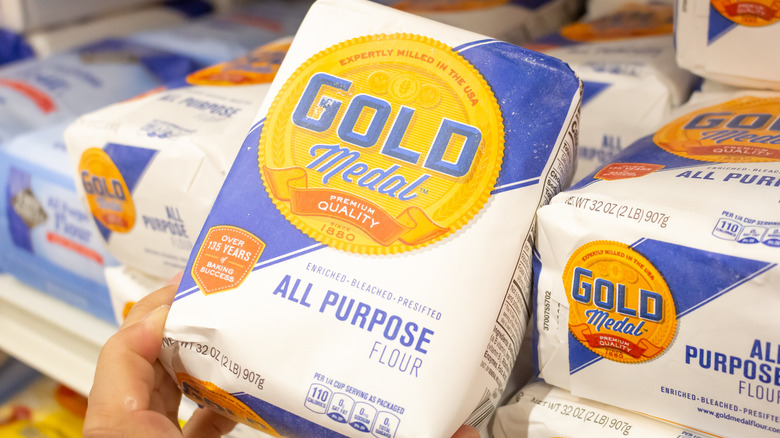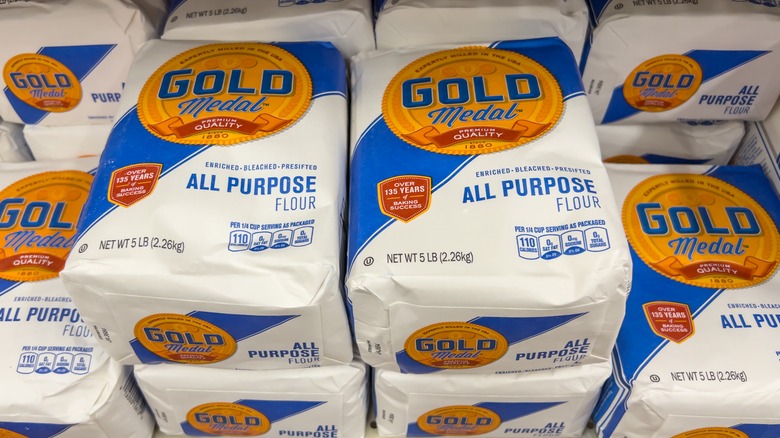General Mills Declares Nationwide Flour Recall After Salmonella Discovery
On Friday, General Mills voluntarily recalled several different types of flour for potential Salmonella contamination. The risk was identified during a random sampling of the 5-pound flour bags. Now, the 2-pound, 5-pound, and 10-pound bags of both bleached and unbleached Gold Medal all-purpose flour are subject to the recall.
Salmonella infections are most commonly caused by improper cleaning of food manufacturing tools and cooktops and from consuming raw or undercooked food. Per the FDA, cooking, baking, boiling, and frying kill Salmonella, but home cooks should steer clear from eating any raw flour – as in, don't lick that cookie batter off the spatula. According to the CDC, an estimated 1.35 million people get infected with Salmonella every single year. Common symptoms include fever, intense indigestion, abdominal pain, and nausea, which can appear within six hours of eating contaminated food, but can also take up to six days to show up.
Another hit to an already shaky flour supply
Gold Medal all-purpose flour is considered unsafe for consumption if it's printed with a "Better if used by" date of March 27, 2024, or March 28, 2024. All other date codes and types of Gold Medal flour are safe. In a press release, General Mills asked consumers to check their pantries and toss any contaminated flour. Pitching groceries is a drag, but it definitely beats getting sick – plus, you might even get reimbursed for your purchase. If you've had to throw away contaminated flour, you can call General Mills Consumer Relations at 1-800-230-8103.
Even though General Mills is one of the most trusted, popular household brand names, this isn't the first time it has dealt with an outbreak like this. Back in May 2016, General Mills recalled a whopping 10 million pounds of flour due to an E. Coli scare that (unlike this most recent Salmonella incident) actually made consumers ill. Thirty-eight people across 20 states reported feeling sick after consuming the brand's flour raw. Over the course of a few months, the recalled quantity grew to 45 million pounds after investigators detected E. coli in flour obtained from customers. Even in the name of safety, a flour recall on this or any scale can be serious and disruptive to food security, especially in 2023 as flour nears an anticipated extreme global shortage due to a poor harvest year.

